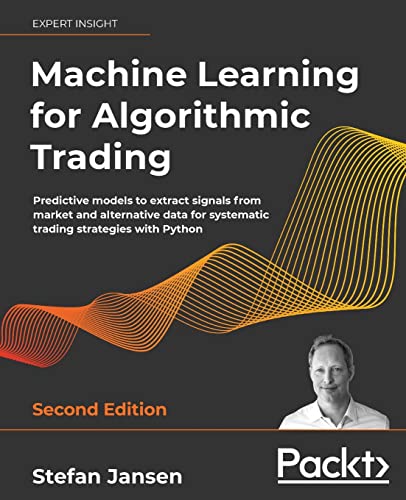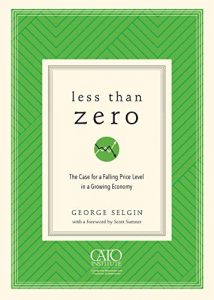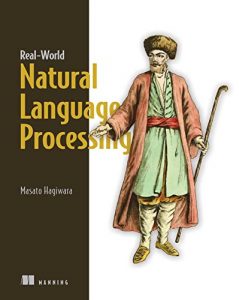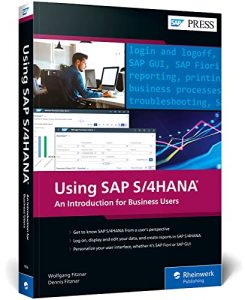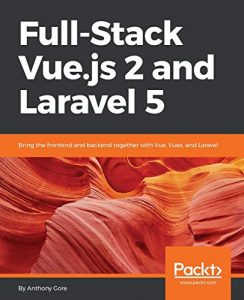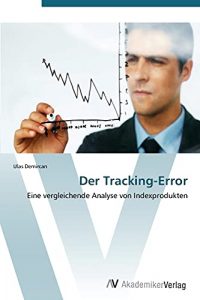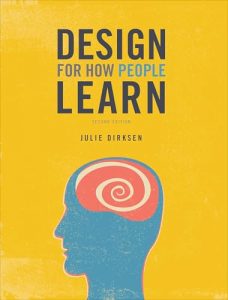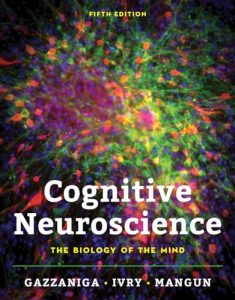1. Machine Learning for Algorithmic Trading: Predictive models to extract signals from market and alternative data for systematic trading strategies with Python, 2nd Edition
If you’re looking to harness the power of machine learning in trading, this book by Stefan Jansen is a game-changer. With a focus on predictive modeling, it dives deep into extracting actionable signals from complex data. The author’s clear and comprehensive approach demystifies algorithmic strategies, making it accessible for both newcomers and experienced traders looking to refine their skills. This updated second edition incorporates the latest market dynamics and machine learning techniques, ensuring you stay ahead of the curve. A must-have for anyone serious about systematic trading!
2. TradeStation EasyLanguage for Algorithmic Trading: Discover real-world institutional applications of Equities, Futures, and Forex markets
Domenico D’Errico’s insightful exploration of TradeStation’s EasyLanguage is a vital resource for traders eager to implement algorithmic trading in real markets. This book not only explains fundamental concepts but also showcases real-world applications across equities, futures, and Forex. It guides readers through practical implementations, equipping them with the necessary skills to transform their trading practices. With its hands-on approach, this book ensures you can effectively leverage algorithmic systems for better financial outcomes.
3. ALGO TRADING CHEAT CODES: Techniques For Traders To Quickly And Efficiently Develop Better Algorithmic Trading Systems (Essential Algo Trading Package)
Kevin J. Davey’s “ALGO TRADING CHEAT CODES” is a treasure trove for traders seeking quick and efficient ways to build effective algorithmic systems. This concise guide packs a wealth of knowledge into an affordable package, covering essential techniques that every trader should know. Davey’s practical tips, combined with his wealth of experience, make it an invaluable read for anyone wanting to enhance their trading toolkit. Whether you’re a beginner or an experienced trader, this book is your cheat sheet to success.
4. Algorithmic Trading: Winning Strategies and Their Rationale (Wiley Trading)
Ernie Chan’s “Algorithmic Trading” is a seminal work that explains the rationale behind winning trading strategies. The book combines theoretical insights with practical applications, making it a powerhouse for both aspiring and seasoned traders. Chan seamlessly blends his extensive experience in quantitative finance with straightforward guidelines, ensuring that readers can create their own successful strategies. This book is not just about theory; it’s about results, making it a must-read for anyone looking to make their mark in the trading world.
5. Technical Analysis of the Financial Markets: A Comprehensive Guide to Trading Methods and Applications (New York Institute of Finance)
John J. Murphy’s classic, “Technical Analysis of the Financial Markets”, has been a definitive guide for traders for years, and for good reason. This book comprehensively covers trading methods and applications, providing invaluable principles for analyzing financial markets. What’s remarkable about Murphy’s work is how it simplifies complex concepts, giving both newbies and experienced investors the tools they need to understand market movements. If you want a solid foundation in technical analysis, don’t miss out on this essential read.
6. Building Winning Algorithmic Trading Systems, + Website: A Trader’s Journey From Data Mining to Monte Carlo Simulation to Live Trading (Wiley Trading)
Kevin J. Davey’s second entry is all about the journey of building robust algorithmic trading systems. Through his insightful narrative, readers will explore data mining, Monte Carlo simulations, and the real-world application of strategies. This comprehensive guide is not just about building systems; it emphasizes the importance of a disciplined approach to trading. Suitable for traders at all levels, this book acts as a mentor, guiding you through the complexities of algorithmic trading.
7. Learn Algorithmic Trading
Sourav Ghosh and Sebastien Donadio’s “Learn Algorithmic Trading” offers a structured approach for readers looking to grasp the fundamentals of algorithmic trading. This book separates itself by providing a solid grounding in key concepts while simultaneously illustrating their real-world applications. The co-authors emphasize a practical understanding of the subject, making this book perfect for beginners wanting to enter the algorithmic trading space. Stay ahead of the game by understanding both theory and practice!
8. Algorithmic Trading and Quantitative Strategies (Chapman and Hall/CRC Financial Mathematics Series)
Raja Velu, Maxence Hardy, and Daniel Nehren deliver a sophisticated examination of algorithmic trading within this academically rigorous textbook. Perfect for professionals and advanced students, this book delves into quantitative strategies that power algorithmic trading systems. Each chapter combines mathematical rigor with practical insights that can be directly applied in the financial markets. For those keen on deepening their knowledge of quantitative techniques, this book is an essential reference.
9. Python for Automated Trading Systems: Building Your Own Bots for Stock and Crypto Markets
J.P. Morgan’s “Python for Automated Trading Systems” is a fantastic resource for anyone looking to dive into automated trading. With a focus on building trading bots, this book offers practical guidance on applying Python in stock and crypto markets. The author breaks down complex programming concepts into straightforward steps, making it easy for readers of all levels to start coding their own trading strategies. This book is an essential companion for tech-savvy traders!
10. Machine Trading: Deploying Computer Algorithms to Conquer the Markets (Wiley Trading)
Ernest P. Chan’s “Machine Trading” explores the methodologies necessary to deploy computer algorithms effectively in trading. A blend of theory and practical insights, the book outlines how algorithms can turn data into profit while mitigating risks. Chan’s engaging writing style simplifies complicated processes, making it accessible to both novice and experienced traders looking to integrate algorithmic tactics into their approach. This book is a vital guide for anyone serious about modern trading technologies.

